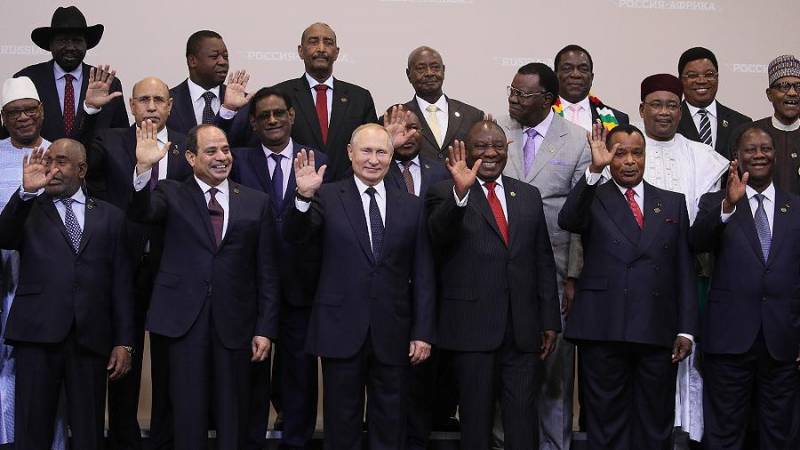The Western media, the western leaders and the western public: All have this tendency to overlook Africa on the world map, despite it being one-fifth of humanity.
And it’s because of this reason that this massive continent is steadily shifting its alliances away from the West, aligning more closely with Russia in what appears to be a solid rejection of traditional Western influence. This pivot, visible at the recent Russia-Africa Partnership Forum in Sochi, marks a significant blow to US and EU dominance on the continent and a win for Moscow in its bid to reshape global power dynamics.
Just recall, when was the last time when a Western nation invited so many African leaders over and rolled out red carpets?
At the Sochi conference, where officials from over 40 African nations and 1,500 delegates arrived, Russia showcased its growing partnership with Africa. The meeting was not just about diplomacy; it demonstrated a tangible economic and political shift.
Just look at trade figures.
Trade between Russia and Africa reached a historic $24.5 billion this year, with Russian exports to the continent rising by 43 per cent.
It was like: As West abandoned Russia, Africa came to embrace it.
Major African trade partners like Egypt, Algeria, and Senegal are driving this growth, with Egypt alone accounting for 28% of Russia’s exports to Africa.
Unlike the West, Russia is offering Africa something the continent deeply values: independence from traditional systems of control. Moscow is helping African countries bypass Western sanctions and economic systems by introducing alternative financial mechanisms. These include using “friendly currencies” for trade, with a goal of having 90% of transactions in non-Western currencies by 2030.
This not only reduces dependence on Western financial systems but also shields African economies from external interference, a crucial factor for nations wary of the West’s historical dominance.
Russia’s appeal lies in its no-strings-attached approach. While Western aid often comes with political conditions, Moscow focuses on mutual benefits through trade, investment, and infrastructure development. At Sochi, agreements were signed in areas like energy, agriculture, technology, and education, signaling a comprehensive partnership that promises to benefit African nations without imposing external agendas. African leaders see this as an opportunity to boost their economies and enhance their global standing, particularly as the continent aims to play a larger role in a multipolar world.
For the West, this shift is deeply unsettling. Africa, with its 1.4 billion people and vast natural resources, has long been a critical geopolitical ally. By fostering closer ties with Africa, Moscow has managed to undercut Western narratives and offer African leaders a choice that wasn’t there before.
The implications of this partnership are profound. Africa, once seen as a passive recipient of foreign aid, is now asserting itself as an active player in global politics. Russian President highlighted this shift at the forum, praising Africa’s growing influence and its ability to shape global issues. By aligning with Russia, African nations are not just diversifying their partnerships—they are signaling their desire to avoid dependency on any single power bloc, including the West.
Russia’s strategic push into Africa is more than just economics; it’s about expanding its geopolitical footprint. The recent deals at Sochi includes infrastructure development and mining partnerships, areas where Africa has significant needs and Russia has expertise.
This collaboration goes beyond trade—it builds long-term influence. The west, on the contrary, has never been in this picture.
The West us struggling to match Russia’s momentum. The EU and U.S., preoccupied with domestic issues and conflicts like Ukraine, have been slow to counter Russia’s advances. This has allowed Moscow to have a free run, one that Africa is happy to witness.
